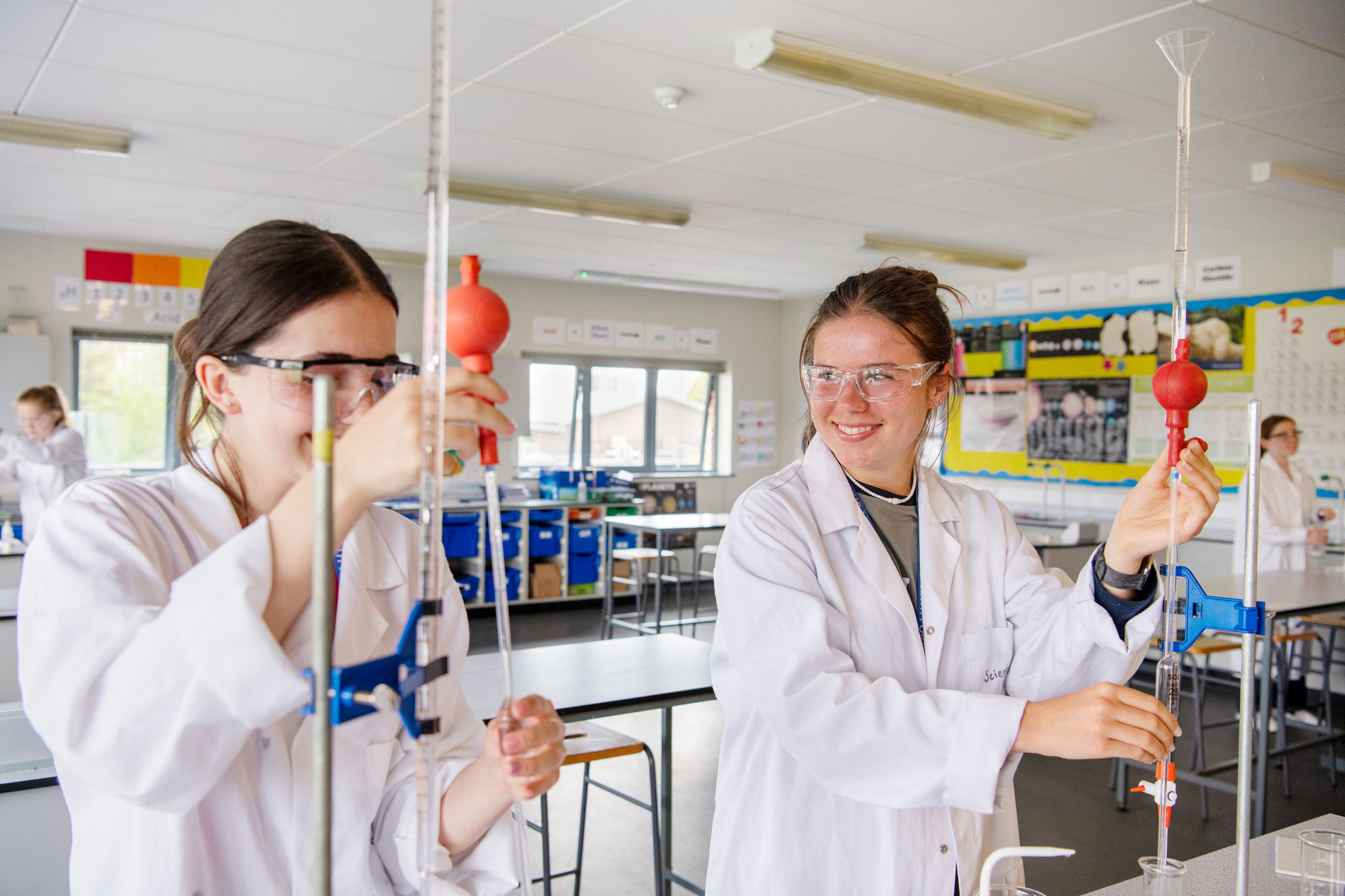
At A-Level, we expand our knowledge about of the natural world based on facts learned through experiments and observation.
Departmental Courses
A Level Biology
A Level Chemistry
A Level Physics
BTEC Applied Science
Who do I contact for more information?
S Colley (directorofscience@poolehigh.poole.sch.uk)
Science - Handbooks and Summer Tasks
Biology involves the study of a wide range of topics, ranging from molecular biology to the study of ecosystems and microorganisms to mammoths. Many areas of biology are at the cutting edge of science with vital innovations occurring every year.
Success in biology involves plenty of additional independent study, a love of science, a problem solving brain and the ability to efficiently carry out practical work.
Topics studied include:
- Biological molecules
- Cell structure
- Organisms exchange substances with their environment
- Genetic information, variation and relationships between organisms
- Energy transfer in and between organisms
- Organisms respond to changes in their environments
- Genetics, populations, evolution and ecosystems
- The control of gene expression
Assessment:
At the end of year 13 candidates will be assessed by 3 written assessment papers, each 2 hours long as well as a non-exam practical endorsement.
Chemistry is one of the most academically challenging courses offered by Poole High School and it is highly regarded by Russell Group universities. Success in this course depends on hard work, the ability to think logically and a high degree of self-motivation. It is a subject which develops competence and confidence in a variety of practical, mathematical and problem solving skills. Chemistry is involved in everything around us and is often referred to as the ‘central science’. It helps to connect physical sciences, like Maths and Physics, with applied sciences, like Biology, Medicine and Engineering. Students who take Chemistry often also study Maths and/or another science subject from Biology, Physics, and Psychology.
Year12 Topics include:
- Atoms, compounds, molecules and equations
- Bonding and structure
- The periodic table and periodicity
- Organic substances and their synthesis and identification
- Inorganic substances
- Reaction rates and equilibrium
- Energetics
Year 13 topics include:
- Organic substances and their synthesis
- Analysis
- Inorganic substances, including the transition metals.
- Polymers and biochemistry
- Enthalpy, entropy and Gibbs free energy
- Acids and bases
- Electrochemistry
- Kinetics
Assessment
There are three two hour exams at the end of the two-year course (AQA 7405 Chemistry).
The exams are:
Paper 1 Relevant physical chemistry topics. Inorganic chemistry and relevant practical skills.
Paper 2 Relevant physical chemistry topics. Organic chemistry and relevant practical skills.
Paper 3 Any content. Any practical skills.
A practical endorsement certificate is also awarded to students who show the required level of competence, based on 12 required practicals and additional practicals undertaken throughout the course. Each student keeps a hard backed laboratory book.
Physics a fascinating subject that allows you to start to understand how and why the Universe works. While studying subjects from sub atomic particle physics to the forces that control the vastness of the universe you will develop your understanding of the world we live in, while accepting there is lots still to discover and explain.
A-level Physics is highly regarded and is identified as a key facilitating subject by the Russell Group of Elite Universities. This means that, along with some other A-Levels, Physics is given a slightly higher weighting when applying for courses at the top universities.
Through your study of Physics, you will develop your ability to problem solve, work with number and communicate ideas clearly. The study of Physics can lead to careers in Architecture, Law, Medicine, Veterinary Science, Dentistry, Computing, Economics, Chemistry, Biology, Mathematics and engineering or electronics sectors.
Topics include:
Year 12
- Measurements and their errors
- Particles and radiation
- Waves
- Mechanics and materials
- Electricity
Year 13
- Further mechanics
- Thermal physics
- Fields
- Nuclear physics
- Optional topic : Cosmology, Turning points in physics, Medical physics
Assessment
At the end of year 13 candidates will be assessed by 3 written assessment papers, each 2 hours long as well as a non-exam practical endorsement.
Biology is also a well-recognised and respected course and is identified as a key facilitating subject by the Russell Group of Elite Universities. It can lead students on to study many different types of science course at university. Students from Poole High School have gone on to study pure Biology, Biochemistry, Environmental Sciences, Forensics as well as medical related courses such as physiotherapy, medicine, dentistry and nursing.
BTEC Applied Science would be excellent for a career in a science-related industry. It would provide the foundations for a subsequent vocational qualification. Most importantly, you would gain transferable life skills of analysis, evaluation, presentation, group work and independence.
Chemistry is a well-regarded facilitating subject. It is a key subject for many health and clinical professions, such as medicine, veterinary science, dentistry, nursing, pharmacy and forensic science. It will also equip students for a career in industry, for example in the petrochemical or pharmaceutical industries, chemical engineering and patent law. Chemistry opens up many other non- science related careers for example accountancy and management consultancy.